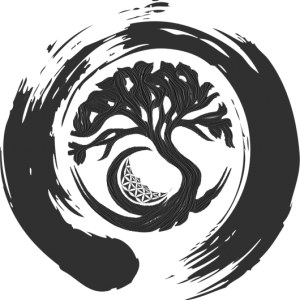When we are sick, we all experience symptoms. Symptoms, by their very nature, are usually uncomfortable. They are something different that the usual state of our body.
For example, when we have a cold, our body temperature is raised slightly to create a hostile environment for the pathogen. This is the body’s way of trying to solve the problem as effectively as possible. But we don’t like being too warm. So we take medicines to cool down the body. Now we are fighting our body while it is trying to fight a cold.
There is a real sense of backwards mentality when it comes to symptoms. Symptoms are an indicator that something is happening in the body. Symptoms are early warning signs, precursors, or even evidence that we need to work on being healthy. When we pop a pill to mask a symptom, we gain temporary relief, ignoring the long term problem. We sweep it under the rug until it manifests again and again.
From an Ayurvedic perspective, we get symptoms when the doshas vitiate in the body or mind. Vata, pitta, and kapha manifest in different ways, and each have their own early warning signs. The doshas are trying to tell us that we need to change the way we are living and eating. If we keep only treating the symptom, then the doshas continue to vitiate, enter the bloodstream and lymph, and are carried everywhere else in the body where they manifest in any number of ways as diseases.
Normally it is only at this point that anyone does anything about it. Often, some symptoms have been ignored for so long that we wind up with untreatable or terminal diseases. At the very best they are diseases that require invasive treatments such as surgery or chemical therapies.
The purpose of a symptom is what is really important. It is there to show us that a dosha is out of balance. If we have knowledge, we can then adjust our diet and lifestyle to fix the root underlying cause, before it spreads elsewhere.
Say for example you go to the doctor with Irritable Bowel Syndrome. This is said to be a disease brought on by stress that manifests physical. So what should truly be prescribed to the patient?
The right thing to do would be to look at the patient’s life, identify what’s causing the stress, and work with them to help reduce them and manage them better. But unfortunately, if you go to the doctor, you will be prescribed symptomatic relief only, in the form of anti-depressants. What does this serve to do? Does it make you better at managing stress? Does it strengthen the body, the mind, the capacity of the patient?
What it does is numb the patient, taking away the symptom. They will need the medication indefinitely.
If your purpose is to merely mask or be rid of a symptom, then your mission will be accomplished with this approach. But if the ultimate goal is to help the patient become a healthy individual, then this approach is actually making them worse.
So if we understand that symptoms aren’t necessarily bad, and are trying to tell us something, then we can support the body in what it’s trying to do. If you get headaches from not getting enough sleep, the solution is to change your lifestyle to support better sleeping habits not to take an advil for the pain. When the body produces excess mucous, it could be because we have dryness. We shouldn’t take medicine to stop the mucous production, but rather try to help the body with it’s overall dryness.
The body has wisdom. Symptoms are a form of body wisdom. Taking chemicals to mask those symptoms only brings us more stress in the end as we run from our problems. In whatever western medical treatment you may be seeking, Ayurveda can help support the body in doing it’s own natural healing. The word natural is key there. To quote my instructor:
“The further we move from nature, the more stress we have” – Mary Thompson
With gratitude,
S


I recently had a viral infection, your famous infections and I didn’t take any “western” medicines… It took a week it to go away, 3 wks for my body to return to full energy level and 3 months for the cough to go away. But I knew it was all the suppressions with previous medicines I had taken… so even though it was painful, it was totally worth it and now I feel healthier and breathe easier.